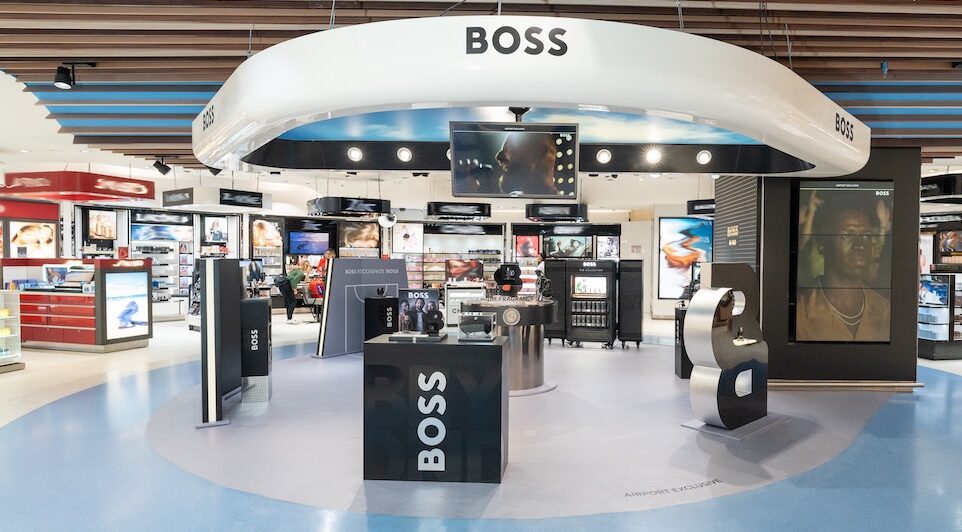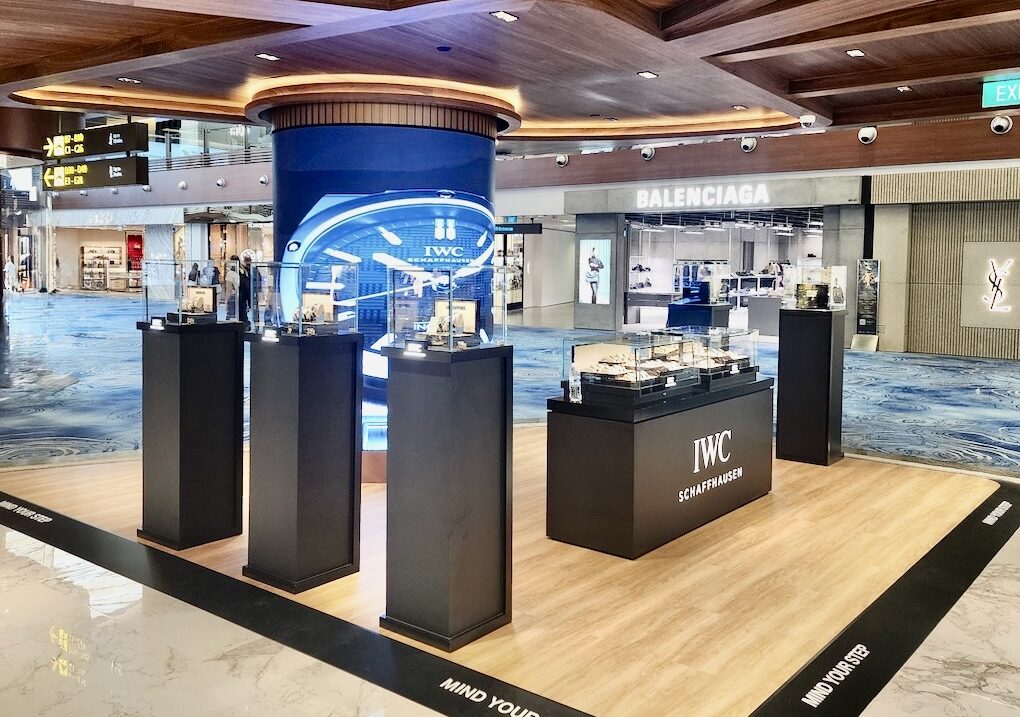NORDIC REGION. The changing retail business model on UK-Europe ferry routes was cast into the spotlight in a key session during this morning’s Nordic Travel Retail Seminar (day two). DFDS On Board Commercial Director Steven Newbury gave fascinating insights into what the changes in duty free allowances brought about by the UK’s exit from the European Union mean for his company and the wider travel retail industry.
In conversation with The Moodie Davitt Report President Dermot Davitt (who chaired the two-day event), Newbery detailed DFDS’s investments in onshore port shops at locations including Calais (as reported) and Dunkirk and aboard a new ship, the Côte d’Opale.
The vessel will host a central retail space of 1,100sq m, making it the largest of its kind among the ships of ferry operators on cross-Channel routes. (Keep an eye out for an upcoming feature on the Côte d’Opale’s retail offer on our website).
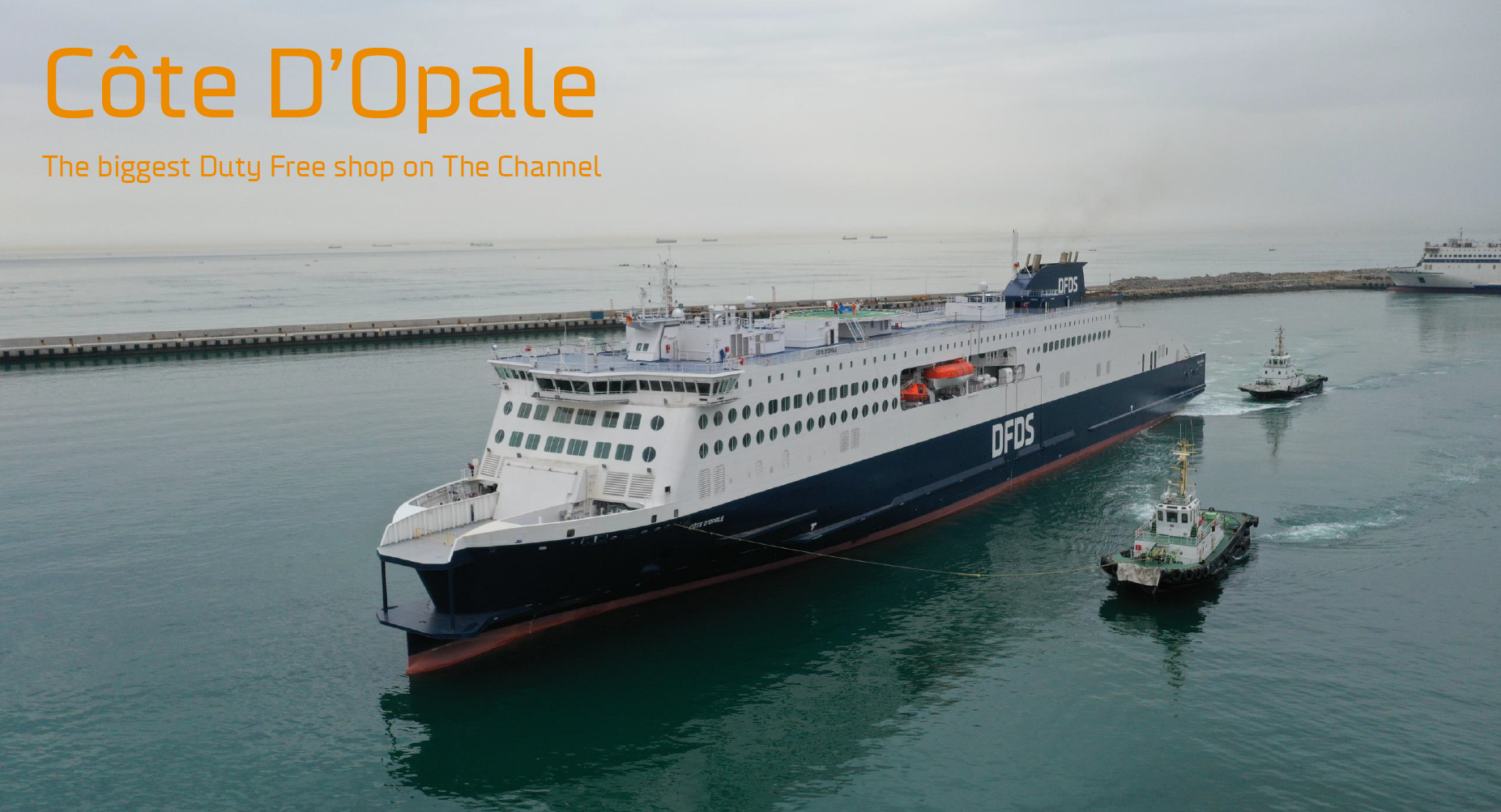
Under the new rules established by the UK Government in September 2020, and brought into force on 1 January year, passengers inbound to the UK now have duty free allowances substantially increased to 42 litres of beer, 80 litres of wine, four litres of spirits and 200 cigarettes. There is also now a £390 tax free allowance per passenger for other goods, including perfumes & cosmetics, clothing and other luxury items.
It all adds up to a huge new retail opportunity for DFDS and other ferry businesses, Newbery explained: “We’ve had this big project in my team for probably nearly two years now, looking at how we can get the best out of duty free when it comes. It will provide up to -50% savings for customers and also a margin increase as well for us – it’s a win win. So something like a litre of standard vodka that would retail in the UK for about £20 becomes extremely possible to sell at £10.
“That is a lot of capacity in the system. So I think there’s going to be a hard fight for the duty free business. We welcome good competition. I think it sharpens up the offers and the passenger experience. It gives people more choice.” – DFDS On Board Commercial Director Steven Newbury
“We now have very, very high allowances [for UK inbound travellers] that are four times what they were in 1999. We couldn’t really believe our eyes but the government saw this as a positive outcome for the travel industry as part of Brexit.”
Pointing out that “not everyone travels for the alcohol or the cigarettes”, Newbery said that a lot of people are looking for savings on other products in the new cross-Channel duty free world, and DFDS’s new plans for retail have been partly built around that.


He said: “We looked at our ships and thought well, we have fantastic ships, we have great shops, but they’re not big enough to handle duty free.”
Thus the DFDS strategy of developing onshore shops was born, to fulfil the bulk side of the duty free allowances (where people could load purchases into their cars), while the onboard shops would focus on smaller items, such as premium spirits, and luxury products. “Sales optimisation for both the vessel and terminal shops allow a targeted approach to assortment,” said Newbery.
Although ferries are mainly currently carrying freight drivers because of travel restrictions hitting the traditional tourism market, he said sales with the new allowances have already gone up to past 2019 levels, when DFDS was carrying about five million passengers a year.
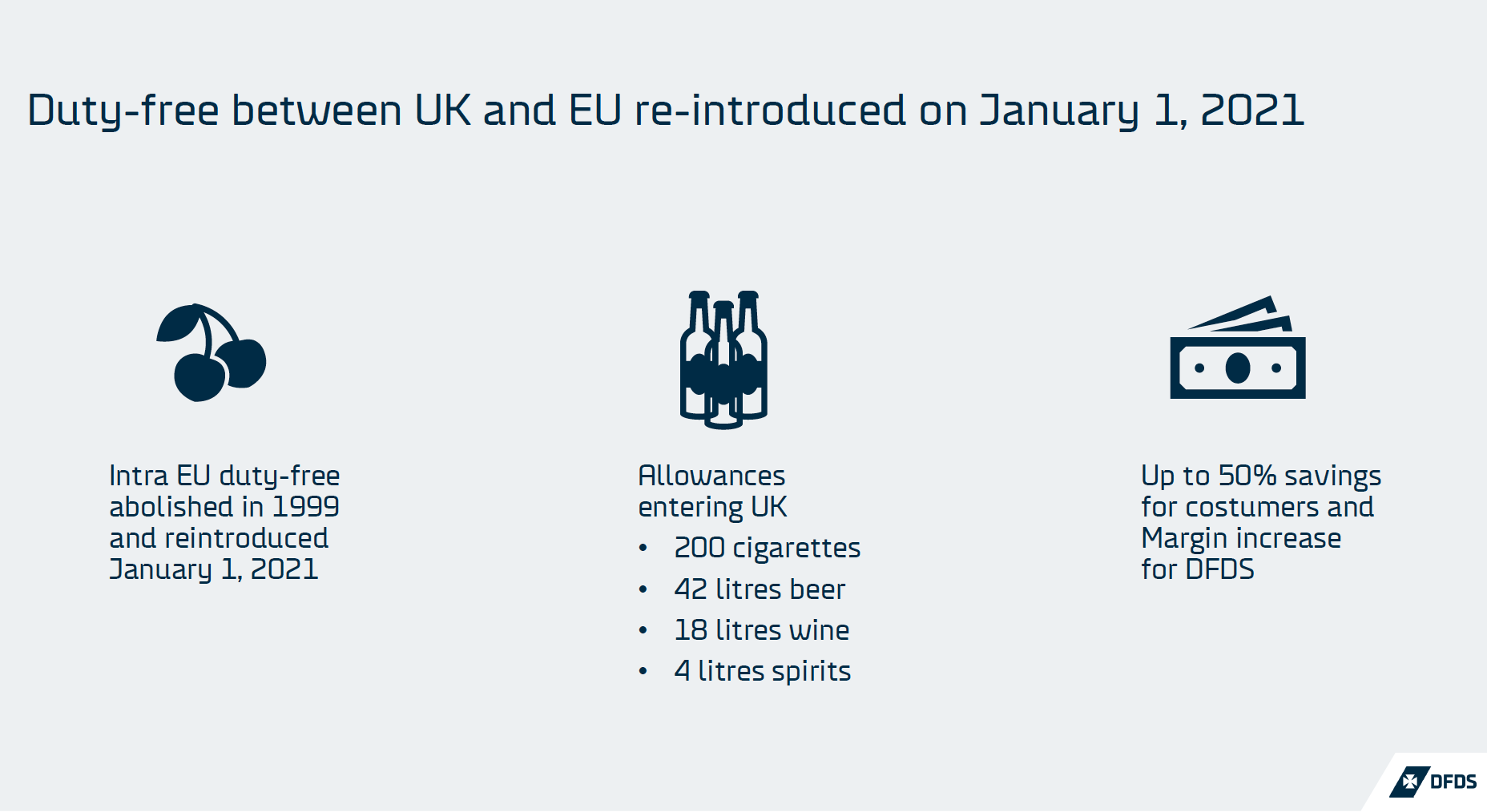
Newbery said the Côte d’Opale– which is currently on route from China to take up its duties – has been designed with the shop “at the heart of the travel experience”.
He explained: “We looked [at retail] in airports and asked ourselves ‘how can we bring that experience to the ferry?’ because the modern ferry passenger expects a travel experience and they expect something different.
“We hope that with the Côte d’Opale and with refurbishment on all our ferries over the next couple of years, we can bring that travel experience and encourage people to get travelling again, which we know is going to be extremely important.
“We see the ferry as leading the way in travel certainly out the UK – there’s a lot of people wanting to know about ferry travel that perhaps haven’t travelled on ferries for many years. And that’s because there’s open space, they feel safer, they can travel in their car, and they don’t have to negotiate large queues at airports.”

Asked about the image change needed to communicate this improved experience to potential new ferry travellers, Newbery said: “A lot of people remember the ferry as the place where you sit on plastic seats while you travel across the channel and it’s not exactly a great experience. The pile it high, sell it cheap [approach to retail] and to get across as quickly as you can.
“Now we see big trends of experience. And we want to deliver that at DFDS through the whole of our network, through longer routes and shorter routes; we want to bring that passenger experience so that it starts when you board the ship.
“So we’ve taken a lot of time over the last few years to keep upgrading our retail offer. And having a new ship just means that you can explore that in a bigger way –the retail in the centre of the ship made a lot of sense to us.
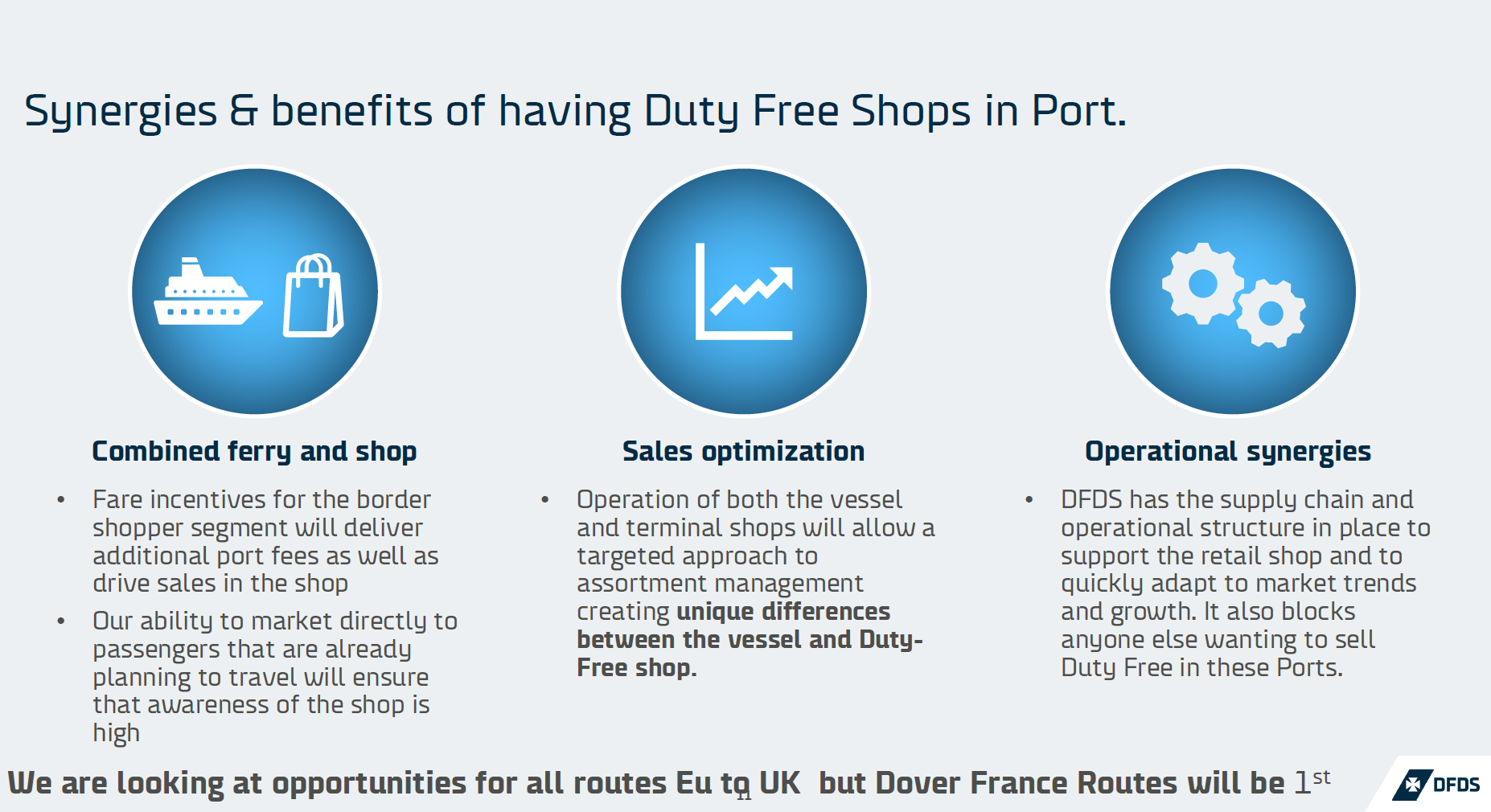
“And now we’re looking at how we bring that to all our other ferries as well, because, when you buy a ferry, you’ve got it for 25-30 years. So you have to be quite forward thinking about where the markets are going.”
Newbery said that the ideal passenger capacity on a ferry across the Channel is no more than 1,000 people. He said: “If we put more than 1,000 people on the ship, then it becomes overcrowded. People just sit on that seat, they don’t spend any money.
“So to bring that experience we said okay, this [the Côte d’Opale] needs to be an airy ship with lots of space. Let’s keep the passenger capacity down below 1,000, which means that we can allocate more space for retail. We know that spend per head in retail with duty free will be lucrative when the passenger volumes come. So let’s just take a punt on this and design this ship with duty free in mind and have a big retail space.”
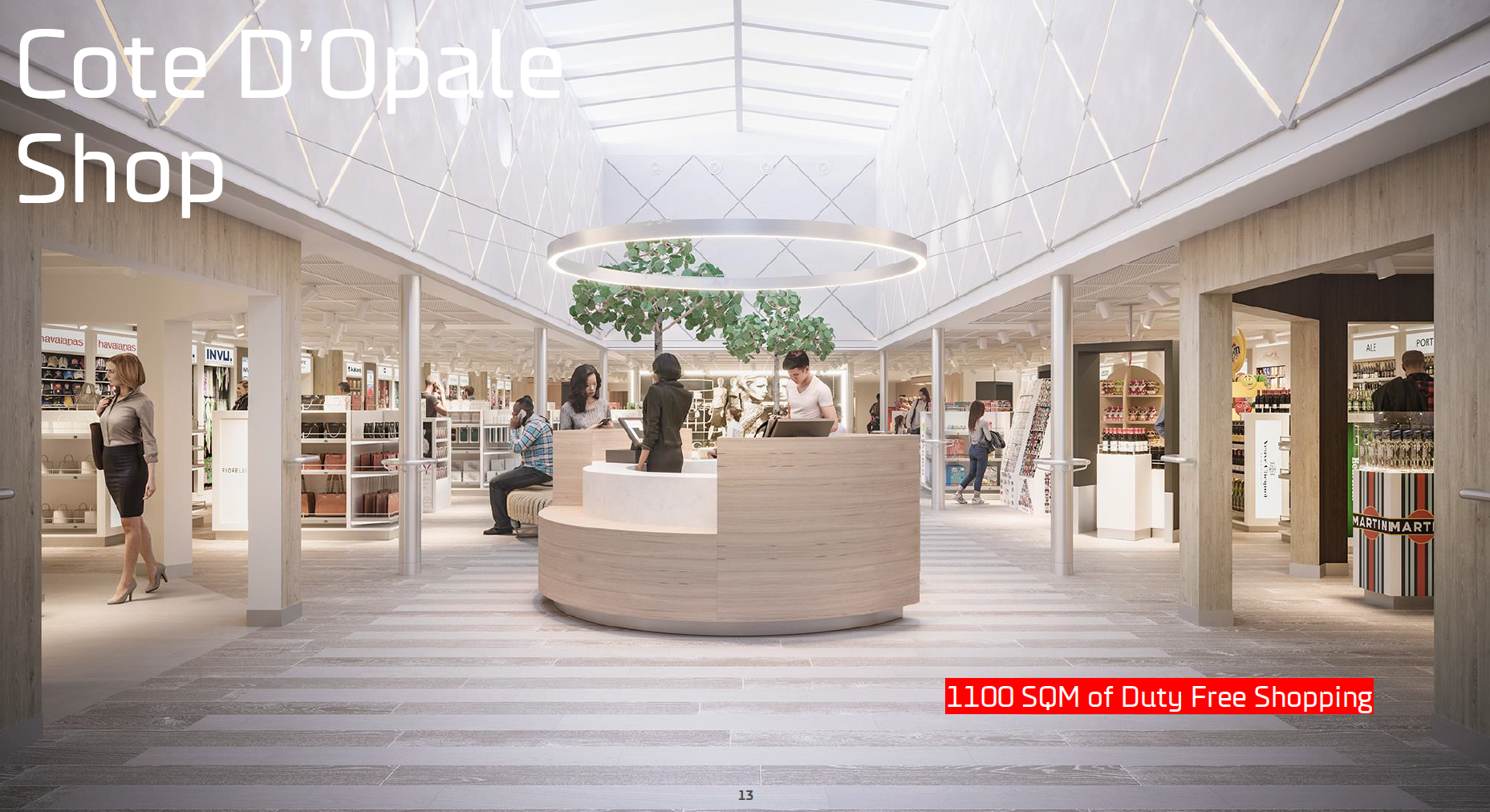
Newbery added that similar thinking has been applied to the onboard food & beverage facilities and also premium lounges, to offer a greater passenger experience. “It’s got that mix,” he said. “It’s got the rest and relaxation. And when people are relaxed, they like to spend money.”
Newbery was asked about the interest of suppliers and brands in this new age of ferry travel, and its transformed retail offer. He replied: “Our main [supply] partner is Heinemann; we have a fantastic relationship with them, supplying the whole DFDS network.
“They’ve engaged a lot of the brands for us, and they’ve had a lot of brands come to them as well, asking about the opportunity.
“And then, as the retail world has opened back up again, more brands are coming [directly] to us on the luxury side, because it is about reimagining what duty free is. And we certainly don’t want to have an image of just pushing cheap booze.
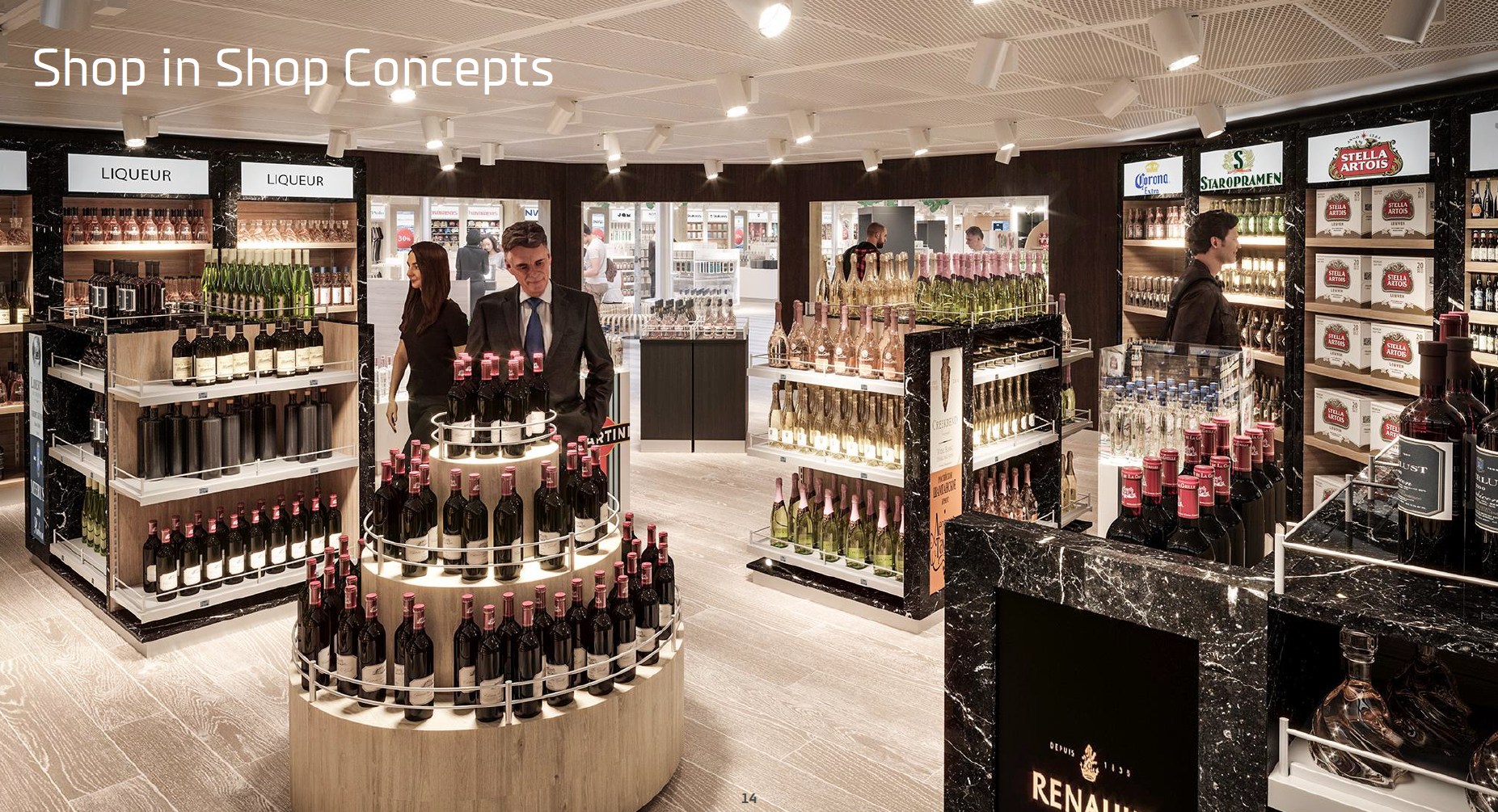
“We do think that there is a wider audience for the duty free [on ferries] as there is in the airports. And to bring that to ferry travel in a post-COVID world, I think it is extremely important that we do educate people what the experience of ferry travel can be.”
It was suggested to Newbery that the potential prizes from the ferry duty free market will lead to some strong competition for DFDS. He said: “You do need to stand out from the crowd. I think that the cross-Channel business is becoming extremely crowded again, with Irish Ferries joining the fight on the Dover-Calais route. So there will be 11-12 ferries going across both ways every day.
“That is a lot of capacity in the system. So I think there’s going to be a hard fight for it [the duty free business]. We’ve got our view which is we will stick to our premium-style offer, we will stand out for the service that we are well known for. We have very loyal customers both in the freight side and on the passenger side.
“We welcome good competition. I think it sharpens up the offers and the passenger experience. It gives people more choice.”







